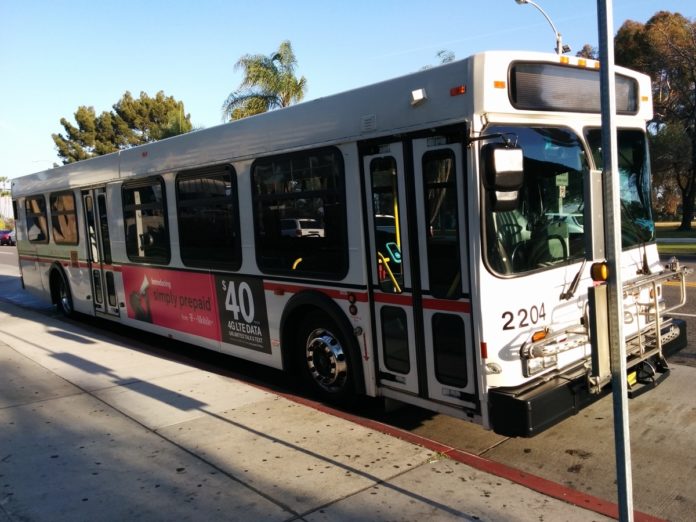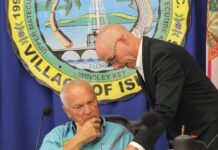
At a recent workshop, the county commissioners had a real conundrum on their hands. Polls say that residents want to stem development in the Florida Keys, and yet they also need more affordable workforce housing. So what should the county do?
Commissioner David Rice proposed an out-of-the-box solution: a more robust public transportation system.
The May 25 strategic planning workshop was coordinated by Kimberly Matthews, Monroe County’s senior director of strategic planning. Matthews was giving the commissioners the results from a round of recent online town halls asking residents, among other queries, an essential question: “What are the county’s greatest challenges?”
Locals answered that the county’s top four challenges are: traffic and road safety on U.S. 1, growth control/overdevelopment, water quality and affordable workforce housing.
These answers were from five online town halls held over the past few weeks with 85 respondents. Of those respondents, 35 percent were from the Upper Keys, 49 percent from the Lower Keys, 10 percent were for the Middle Keys, and 6 percent were visitors from outside the county.
Due to these pandemic times, the town halls were held virtually, but back around 2019, a much more comprehensive survey was conducted.
“How we turn the concerns of the public into solutions — that is what strategic planning is all about,” said Matthews. Strategic priorities plus resource allocation equals action. With a strategic plan, local governments make priorities for their fiscal years, then implement the plan in the budgets and in staff directives.
Matthews said the 2019 survey, which helped form the strategy for Monroe County’s fiscal years 2020 to 2025, was a “huge community process where we talked to 3000 people” during 13 in-person town halls for residents, surveys, staff meetings and talks with stakeholders.
At that time, to answer the question, “What are the county’s greatest challenges,” the top four answers were the same, though in a different order: affordable workforce housing, growth control/overdevelopment, traffic and road safety on U.S. 1 and water quality.
The recent series of online surveys, Matthews explained, “was to reaffirm and review our strategic priorities.”
Commissioner Craig Cates said he wasn’t concerned about the moving over the past couple of years of the residents’ concerns in the rankings, which he attributed to COVID. “But I’m glad to see it’s all the same (concerns),” he said. “That just means we’ve got work to do.”
Mayor Michelle Coldiron agreed. “This is what we hear when we’re out in the community every single day, all four of these issues.”
“I share with Commissioner Cates the feeling that if one slips from 2 to 3, that’s really not significant,” said Commissioner David Rice. “What’s significant is the overall picture doesn’t change.”
Since this meeting was a workshop, with no actions to be taken, all five commissioners spoke freely about possible solutions to these issues, especially affordable housing.
“We know we can’t build enough affordable housing,” said Rice. “We don’t even have enough locations to build enough affordable housing. But I think in the future it will become vitally important for us to set more of a priority to set up a much more robust transportation system.”
Cates supported Rice’s view. “Like what (Matthews) said, it’s diametrically opposed: growth and building affordable housing. We need to look at answers like what you have because we can’t build our way out of this.”
Rice advocated action and said he will bring an agenda item to be voted on at the June BOCC meeting “for the transportation issues we discussed.”
The commissioners also discussed other Monroe County challenges for Matthews to keep track of in the strategic plan: building a skilled workforce, educating the public about residential floodproofing, beautifying the U.S. 1 corridor, prioritizing parks and recreation, taking inventory of the county’s mental health resources in a post-COVID world, and broadening access to water for recreation and the economy.


























